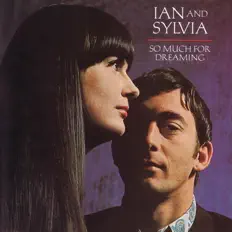
Singer/Songwriter
United States
Buffy Sainte-Marie
Buffy Sainte-Marieのトップソング
Buffy Sainte-Marieの他のアルバム
Buffy Sainte-Marieの人気のミュージックビデオ
Buffy Sainte-Marieについて

Folk-music firebrand, early electronics experimentalist, and writer of pop hits Buffy Sainte-Marie started out as a marginalized misfit and eventually made a big splash in the mainstream. Abandoned on a Saskatchewan Cree reserve after her birth in 1941, Sainte-Marie was adopted by a Massachusetts couple and became a vital component of the ‘60s folk scene, soon finding stardom through widely covered hit compositions and her own powerfully trilling voice. The pacifist anthem "Universal Soldier," her autobiographical "Cod'ine," and "Now That the Buffalo's Gone," a lament for cultural genocide, all appeared on her 1964 debut, It's My Way! She relished experimentation, but the bracing Buchla synthesizer modulations undergirding her 1969 album Illuminations—the first totally quadraphonic electronic vocal album—weren't fully appreciated for decades. Although she was blacklisted by many radio stations for her environmental and Indigenous-land-rights activism, Sainte-Marie found a sympathetic audience of parents via regular Sesame Street appearances throughout the late '70s. With co-writing husband Jack Nitzsche, she became the first Indigenous person to win an Oscar, for "Up Where We Belong" from 1982's An Officer and a Gentleman. Exciting new sounds, Indigenous rhythms, and outspoken politics all inform category-eluding late-career Sainte-Marie albums, such as her 2015 Polaris Music Prize-winning Power in the Blood and 2017's Medicine Songs, which features a torch-passing collaboration with throat-singing Inuit activist Tanya Tagaq.
Buffy Sainte-Marieに似た曲やアーティスト
Buffy Sainte-Marieに似た他の音楽やアーティスト(たとえばIan & Sylvia、 Joan Baez、 Joni Mitchellなど)をもっと見つけましょう。


































